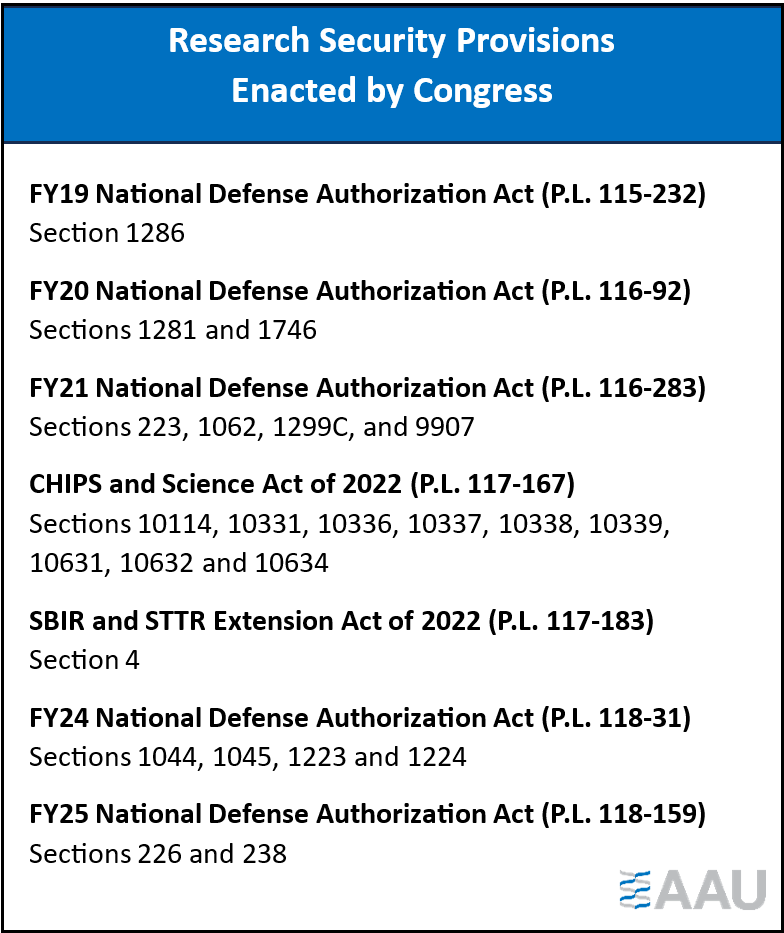What’s at stake: If the United States does not carefully balance the need for new security requirements with the associated costs, we risk losing our competitive advantage as other nations seek to advance their research capabilities.
America’s leading research universities take seriously the economic and national security threats posed by foreign adversaries and universities have taken steps to secure and protect the research they conduct. At the same time, international scientific collaboration and scientific openness remain critical to America’s continued global scientific leadership.
Key Facts: The Association of American Universities (AAU) and the Association of Public and Land-grant Universities (APLU) have surveyed our members to collect effective research security practices. The results demonstrate that universities are taking these matters seriously and have taken steps to address research security, including:
- Research Security Strategy and Coordination: Universities have established campus-wide working groups and task forces on research security which regularly meet to review the latest threats and effective practices and discuss policy implementation. Institutions have also established a chief research security officer position to coordinate and oversee efforts to protect and secure research.
- Research Security Training Requirements & Awareness Building Efforts: Universities are incorporating research security training modules as required by federal agencies. Universities have created centralized websites with guidance and FAQs for faculty to keep them apprised of the growing list of federal policies and requirements related to research security.
- Risk Assessment and Mitigation Process: Universities have developed risk criteria and use of comprehensive review processes for review of grants, contracts, and foreign gifts. To this end, institutions increasingly have established a risk management committee for discussion and review of international engagements and collaborations. Universities also engage and comply with federal research agencies risk review and mitigation processes.
- Policies on Disclosure of Conflicts of Interest and Conflicts of Commitment: Universities have reviewed their conflict-of-interest and conflict-of-commitment policies and made updates to faculty disclosure policies to more clearly identify foreign affiliations, relationships, and financial interests.
- Engagement and Coordination with Federal Intel Agencies and Security Officials: Universities regularly meet with, and have built strong relationships with, their local FBI offices. Universities also engage research funding agencies when they need to mitigate and resolve research security issues.
- Policies on Foreign Gifts and Contracts Reporting: Universities have assessed their policies on reporting foreign gifts and contracts and have improved their reporting procedures as part of Section 117 of the Higher Education Act.
- Policies on Export Control Compliance: Universities have put in place comprehensive policies regarding whether and how they will undertake export-controlled research activities. This includes using restricted-party-screening software within shipping, procurement, academic visitor processes, and training for faculty and staff. Additionally, universities have an export control officer (or officers) with overall responsibility for ensuring university compliance with export control rules and other security controls.
- Policies on International Travel & International Visitors to Campus: Universities have implemented risk-based international travel policies for faculty and staff. NSPM-33 requires universities to collect information on researchers and their foreign travel. Universities also have requirements for vetting and securely hosting foreign visitors while on campus, including centralized processes for evaluating prospective visitors.
